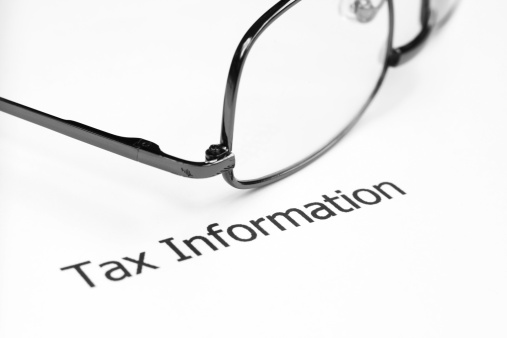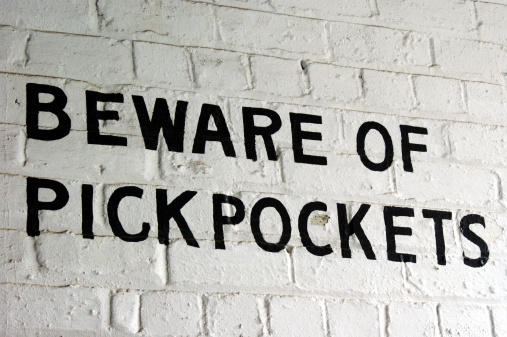Retire abroad with Maximum Privacy
If you are thinking about retiring abroad, here is how to maximize your privacy. We start with the premise that the U.S. government wants you to disclose all assets, holdings, transactions, and investments. We then look for exceptions to those rules to find the legal loopholes that will allow you to retire with maximum privacy.
As you know, U.S. persons must pay tax on their worldwide income no matter where they live. Even if you retire outside of America, the IRS wants theirs. To enforce these laws, the U.S. requires you to disclose your assets each and every year on the Foreign Bank Account Report form and the Foreign Asset Report. Both of these force you to tell the U.S. what you have and where they can find it.
Well, there are a few … and I mean a very few … exceptions to these reporting requirements. In this article, I will describe each to give you an idea on how to retire abroad with maximum privacy.
My favorite tool to maximize privacy offshore is physical gold held in your name. You are not required to report physical gold on the FBAR or the Foreign Asset statement. Physical gold is gold bars or bullion, and not gold stocks. Paper gold must be reported while physical gold is exempt.
So, you may hold gold in Panama or Switzerland, in a vault in your name, and you are not required to report it to the U.S. I suggest gold is an excellent hedge if you have any concerns about the U.S. economic system or the USD.
Two quick sidebars:
- When I say something is held in your name, I mean that you are the owner. If gold is held in a corporation, trust, or foundation, you need to report the entity on the appropriate form and the asset on that entity’s balance sheet. If no structure is used to hold the exempted asset, then no reporting is required.
- I am talking about living abroad with maximum privacy, not reducing or eliminating U.S. tax. I will leave that topic for another day. Suffice it to say, if you buy physical gold, you are not required to report its existence. However, when you sell that gold, it is a capital gain, taxable on your U.S. return unless it is inside a U.S. compliant retirement account.
The next best way to retire overseas with maximum privacy is to invest in foreign real estate and hold that property in your name … again, not an offshore company. So long as you live in it, or it is vacant, you have no reporting obligations on foreign real estate.
If you decide to rent it out, then it is reported on your IRS Form 1040, Schedule E, just as a U.S. property. Though, there is nothing that necessarily denotes it as an offshore property. If it is your primary or vacation home, there is no reporting until you sell it. Then it goes on Form 1040, Schedule D as a capital gain. Because you will probably pay significant tax on the sale in the country where the property is located, you usually don’t have any tax due to the U.S. You will find several detailed articles on this site discussing offshore real estate transactions.
The best way around the FBAR form is to open your offshore bank accounts in the name of an offshore IRA LLC. The LLC is owned by your U.S. compliant retirement account and thus exempt from the various reporting requirements. While all savings accounts must be reported if you have more than $10,000 offshore, a bank account owned by your retirement account is excluded.
And if you think about it, that makes sense (a rare convergence of law and logic). When you take your IRA offshore, it is the IRA that owns the offshore LLC, and you act as the manager or fiduciary of that structure. Because the account is owned by an IRA, and not a person, it would be confusing at best to require an FBAR.
If you have questions on this, or would like proof of my claim, search FBAR at IRS.gov. You will see that accounts held by an IRA are exempt.
The same goes for an IRA account inside of a Panama Foundation. This structure allows for maximum asset protection, as well as offshore estate planning, and remains exempt from the FBAR form. Please see my recent posts on the Panama Foundation IRA structure for more information.
Another option for avoiding the FBAR is to invest in an offshore life insurance. If it’s a U.S. compliant policy, a single pay policy will usually allow your income to grow tax free and won’t be reported.
Though, there are many variations of offshore life insurance. I suggest you talk with your insurance provider and confirm that the structure you are considering does not require you to report the account on the FBAR and is exempt from all other U.S. filing obligations.
The last option I will offer on how to retire abroad and maximize privacy is to hold any business interests or projects in joint venture structures where your partner is not a U.S. person. If the other owner of the offshore company is neither a U.S. citizen nor a U.S. resident, you will have a lot more freedom.
For example, if you own and/or control 50% or less of an offshore company, then you need only report the formation of the structure on IRS Form 5471. You are not required to report the company each year … just when you incorporate it and when you sell it.
Likewise, if you are not a signatory on the offshore company’s bank account, you will not need to file the FBAR. In that situation, you could be a partner in an investment company for decades and have no U.S. reporting obligations until the company is sold.
I hope you have found this article on how to retire abroad with maximum privacy helpful. Please call or send an email to info@premieroffshore.com for additional information. We will be happy to work with you to structure your retirement abroad to keep you compliant with the IRS.











